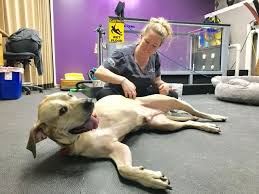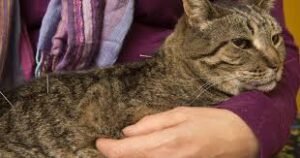Reasons Why You Should Choose A Holistic Veterinarian
They practice holistic medicine. Holistic medicine is a way of treating a patient by using natural methods such as acupuncture, chiropractic, herbal medicine and diet, to treat the whole patient. Holistic veterinarians not only look at symptoms like a regular veterinarian would, but also look at diet, the environment, stress, genetics and past history. With this all this information they can treat the whole problem, not just fix the complaint.
The treatments they use are more natural. The types of treatments used are safe and natural substances such as herbs, vitamins, homeopathics and even foods. They are safer for the animal, the animals respond well to them, and they have little to no side effects.
They are very knowledgeable. Not only has your holistic veterinarian gone through the traditional medical training that a regular veterinarian goes through, they have also gone through additional training and certification in things such as acupuncture, chiropractic, homeopathy and herbal medicine.
They practice complementary medicine. Most holistic veterinarians provide treatments and therapies that are a complement to what your regular veterinarian is doing. They can also use traditional diagnostic tests such as lab work and x-rays to help formulate a diagnosis. Occasionally holistic vets will recommend surgery or drugs in combination with the natural therapies, if they think that will be the best form of treatment for your pet.
Your pet is going to live longer and feel better! While holistic medicine can treat many different conditions, its main focus is in preventive medicine and keeping the body healthy and in balance. All this will make for a happier, healthier, less stressed pet!

How to find a holistic veterinarian that utilizes a natural approach
Choosing a vet is hard, especially if you want to find holistic veterinarian that utilizes a natural or integrative approach.
Although it can take more work and time than it does to find a conventional vet, if you do your homework and think through what you are truly looking for before you start your vet search, you can find a clinic and practitioner that will provide your pet with care you feel confident about for the pet’s entire lifetime – and that’s huge.
So what is the best approach to finding a holistic veterinarian that really clicks with you and your pet? Follow the steps below.
Think through the following factors and decide what you prefer/need in each category.
Cost
You need to think through cost in the short term and long term.
On the one hand, going to a holistic veterinarian can save you money in the long run because you are treating the whole dog and looking at the root cause of any issues, not just treating the symptoms.
You may pay more in the short term for appointment fees and supplements, but your dog may avoid larger more expensive problems down the road like surgery or prescription medications.
On the flip side, you may simply not be able to afford certain vets: I’ve been to vets that had prohibitive appointment fees, and when they investigated an issue, wanted to run every test in the book to find out what was going on.
At that point in my life, I just couldn’t afford what they recommended. In that case, I opted to go to a vet that was conventional, but was open to trying more natural things, I just had to do the research and talk to him about it.
He also respected my choices to vaccinate certain dogs less frequently because of health challenges they were facing – that was a huge factor for me.
It’s hard, but you have to find a balance. In general, you get what you pay for, but not always – sometimes you get more, sometimes you get less.
Expertise
Think about what type of holistic medicine you want to have access to, and investigate if the vet office you are considering offers it.
Different holistic vets specialize in different modalities, so know what each office you are considering offers. Examples of different specialties include:
- Homeopathy
- Traditional Chinese Veterinary Medicine (acupuncture, herbs, and foods)
- Herbal Medicines
- Flower Essences
- Osteopathy
- Chiropractic
- Nutrition/Nutritional Support
- Reiki
- Tellington Touch

Philosophy
You want to have an idea of what your philosophy is and what you are looking for in your vet’s philosophy.
Holistic vets range from integrative (using both conventional and holistic treatments) to having a narrow specialty (for example only homeopathic or only Chinese medicine), to really off the beaten path of what we’re used to.
For example, at one point in my life I tried a natural practitioner who said she could tell what my dog was trying to say to me and wanted me to say reaffirming things to my dog to help him heal.
This was so, and I mean SO, beyond my comfort zone it wasn’t even on the same PAGE as the rest of my comfort zone.
This type of approach made me extremely uncomfortable – so not a good match for me – but a good learning experience on doing your homework before making appointments.

Choosing the Right Holistic Veterinarian
When I was searching for a holistic veterinarian, I started with referrals. I asked friends and people on Facebook who they liked in the area. There was one veterinarian who received loads of high praise, and I fell in love with him when I took Rodrigo to see him. However, the distance was too much, and it didn’t work out in the long run.
So I was on the hunt again, and I learned three things:
- Some holistic vets aren’t familiar with or condone raw feeding as a diet option.
- Some holistic vets still promote regular, unnecessary vaccinations.
- Some holistic vets are expensive when compared to traditional vets.
So what is holistic veterinary medicine and what can it do?
Holistic is derived from the word whole, and refers to the treatment of the whole organism, rather than the treatment of individual body parts, or the removal of symptoms. Conventional or Western medicine tends to concentrate more on the removal of symptoms. Holistic veterinary medicine encompasses many modalities, including conventional medicine where it is required or appropriate. Modalities such as acupuncture, homeopathy, herbalism or nutrition are better referred to as complementary rather than alternative, as they can complement more traditional methods not just be last resort alternatives. It is required that the practitioner treating animals with whatever holistic method be first and foremost a licensed veterinarian. This is because veterinarians are rigorously trained in the diagnosis of disease and the practice of veterinary medicine and can determine the best approach for an individual patient. For example a broken leg often requires surgical intervention, although homeopathic remedies can subsequently be used to increase healing, and decrease pain and inflammation. This is an example of true complementary medicine, where the best of all worlds is available. Holistic veterinary medicine includes many modalities and the following is a brief overview of the most commonly used .
NUTRITION
The key to good health and a healthy body is directly related to what is put into that body, and this applies to both animals and people. Good nutrition is the basis of a healthy pet. It is essential to feed as healthy a diet as you can. Many commercial pet foods include by-products and also chemicals that are known to have serious side effects. By-products include chicken heads and legs, tumors, diseased organs, and many other things that are not considered good for human consumption. If you wouldn’t eat it why should your pet? Chemicals to avoid include BHA, BHT and ethoxyquin, as well as any artificial coloring or flavoring. Ideally a natural home prepared diet is a lot healthier, providing that an appropriate vitamin and mineral supplement is added. With cats it is essential to add the essential amino acid taurine to their diet, as lack of this can lead to blindness. Foods that are good to feed include natural whole grains, such as brown rice, organic vegetables, and meats such as chicken, beef or rabbit. There are many good books that suggest detailed diets and some suggestions are given below. If it is not possible to prepare a diet then a good quality commercial pet food should be considered. Look for a food that is preserved naturally and keep away from artificial additives or by-products. Read the labels, and don’t just look at the bag, as this can sometimes be misleading. Many good natural pet foods are available, but even so it is good to add some natural foods in with the pet food, such as some left over vegetables or meat. Try and give as natural a food as possible and your pet will start to look and feel more healthy, vibrant and energetic.
ACUPUNCTURE
Acupuncture is an ancient Chinese method of treatment that most people have heard something about. It is based upon the concept that the body has meridians, or energy lines, running along it, and when the body is out of balance the energy lines are blocked or deficient in some way. The use of needles at appropriate acupuncture points will rebalance or redirect this energy and balance the body. The acupuncture points have been mapped over thousands of years by the Chinese and now have even been identified with modern scientific techniques. Some of the effects of acupuncture include pain relief, a strong sense of well-being, decreased inflammation and increased blood flow to the area being treated. By appropriate use of acupuncture, conditions such as hip dysplasia, intervertebral disc collapse, arthritis and nerve damage can be treated successfully. Additional benefits can include longevity and this refers to an increase in both the quality and quantity of life. Many old dogs treated with acupuncture live longer than average and enjoy less arthritis and increased energy and it is a joy to watch them respond. Acupuncture certainly offers a viable alternative to the use of pain killers and steroids, as well as surgery and has few, if any side effects when used appropriately.
HOMEOPATHY
Homeopathy is a system of medicine that was developed in Germany by Dr. Samuel Hahnemann in the late eighteenth century. It is based on the Greek words meaning similar suffering and the concept that a substance that causes a symptom in a healthy patient will treat that same symptom in a sick patient. A single homeopathic remedy is chosen to treat the whole animal, including their mental, emotional and physical symptoms. This is in contrast to conventional or allopathic medicine where symptoms are suppressed or removed by the use of drugs such as antibiotics or pain killers. Of course there are certain life threatening situations where antibiotics are essential, but homeopathy actually stimulates the body to heal itself, and strengthens the immune system, and consequently leaves the body in a better state of health than before it became sick. It can treat many conditions effectively, and it is said that there are no incurable disease, just incurable patients. What this means is that many diseases can be treated, which conventional medicine cannot cure, but some patients are so sick and suppressed that they will never be truly cured, though they may be helped and given some comfort. People and animals that are treated all their life with homeopathy are overall healthier and live longer, because their immune system is continually being strengthened and challenged rather than suppressed and weakened.